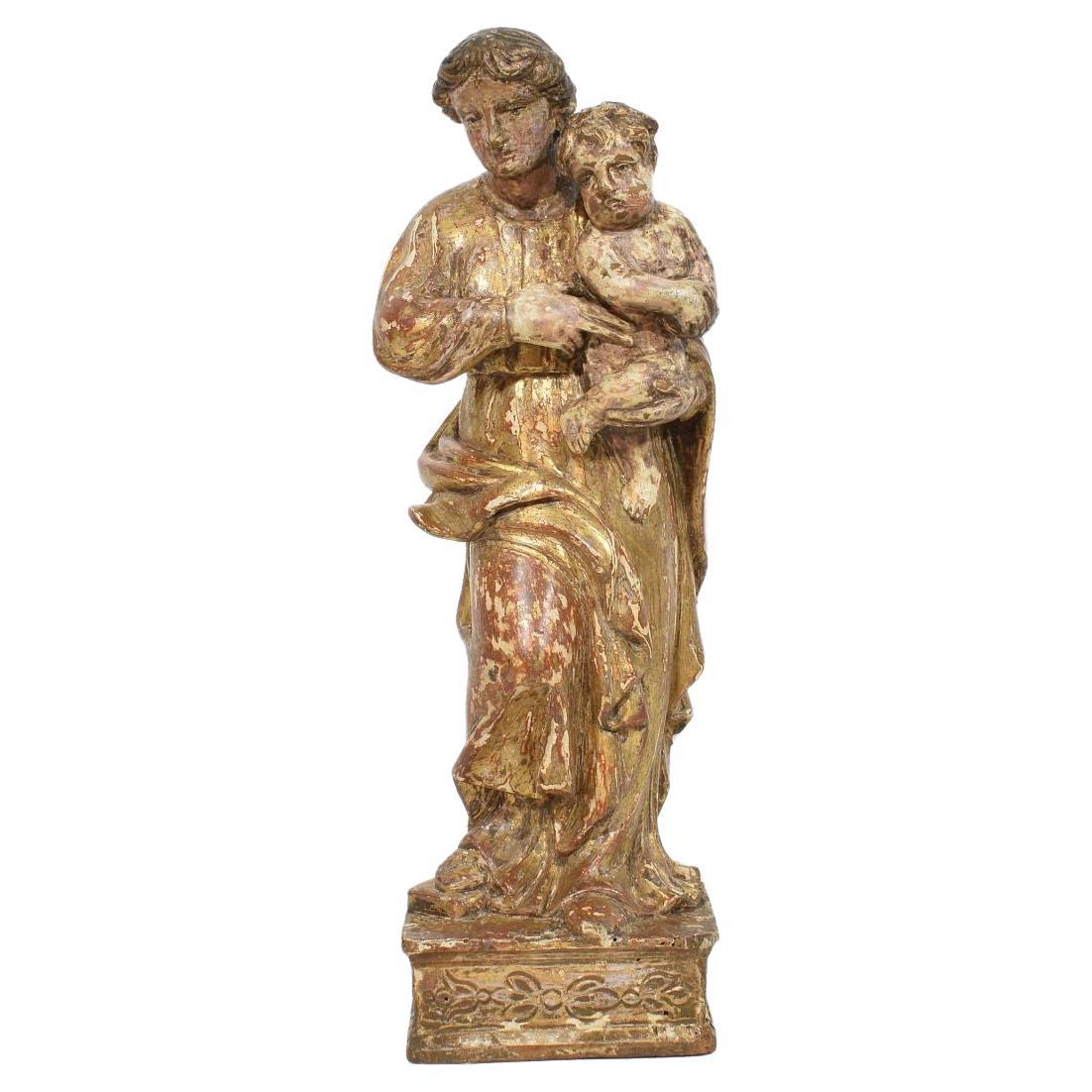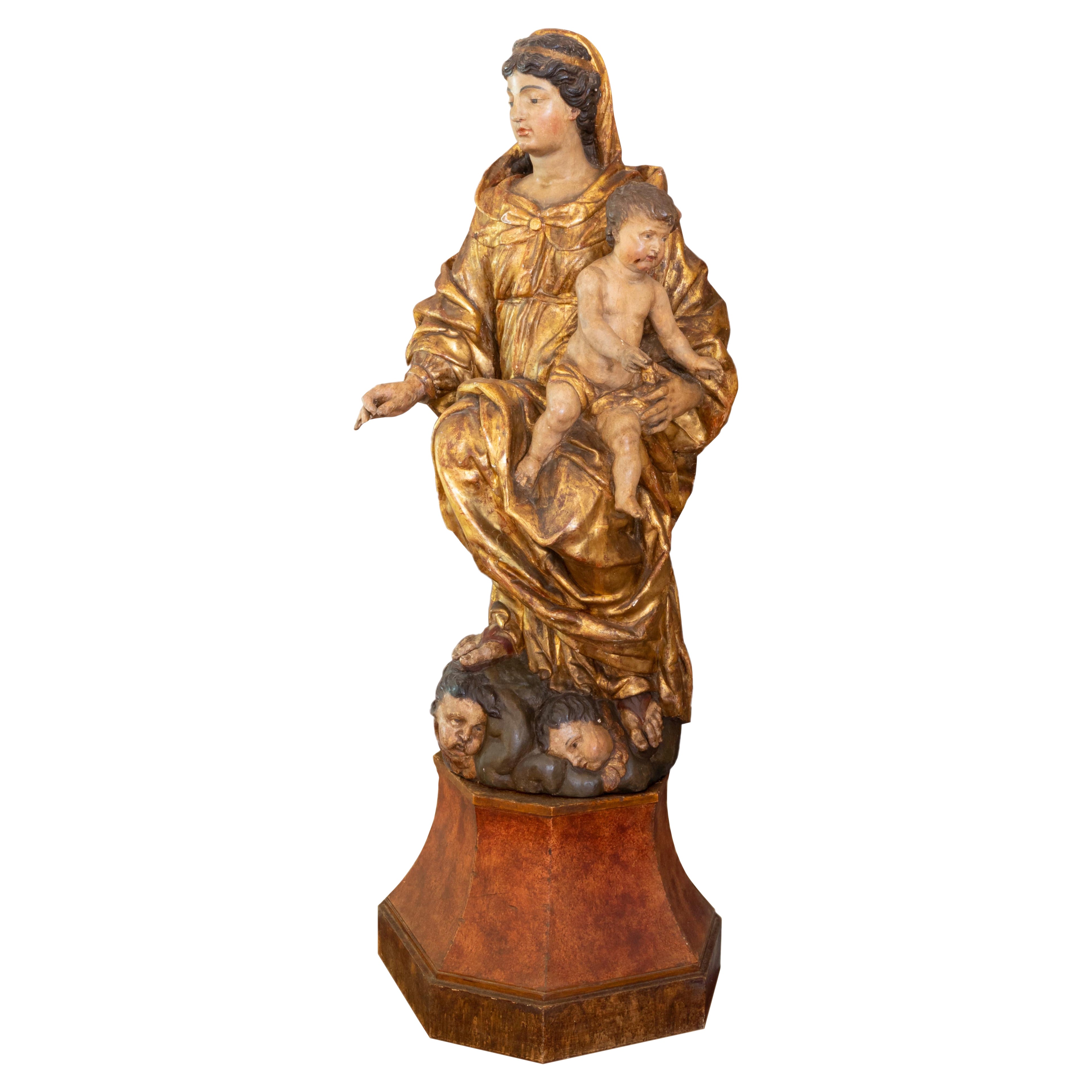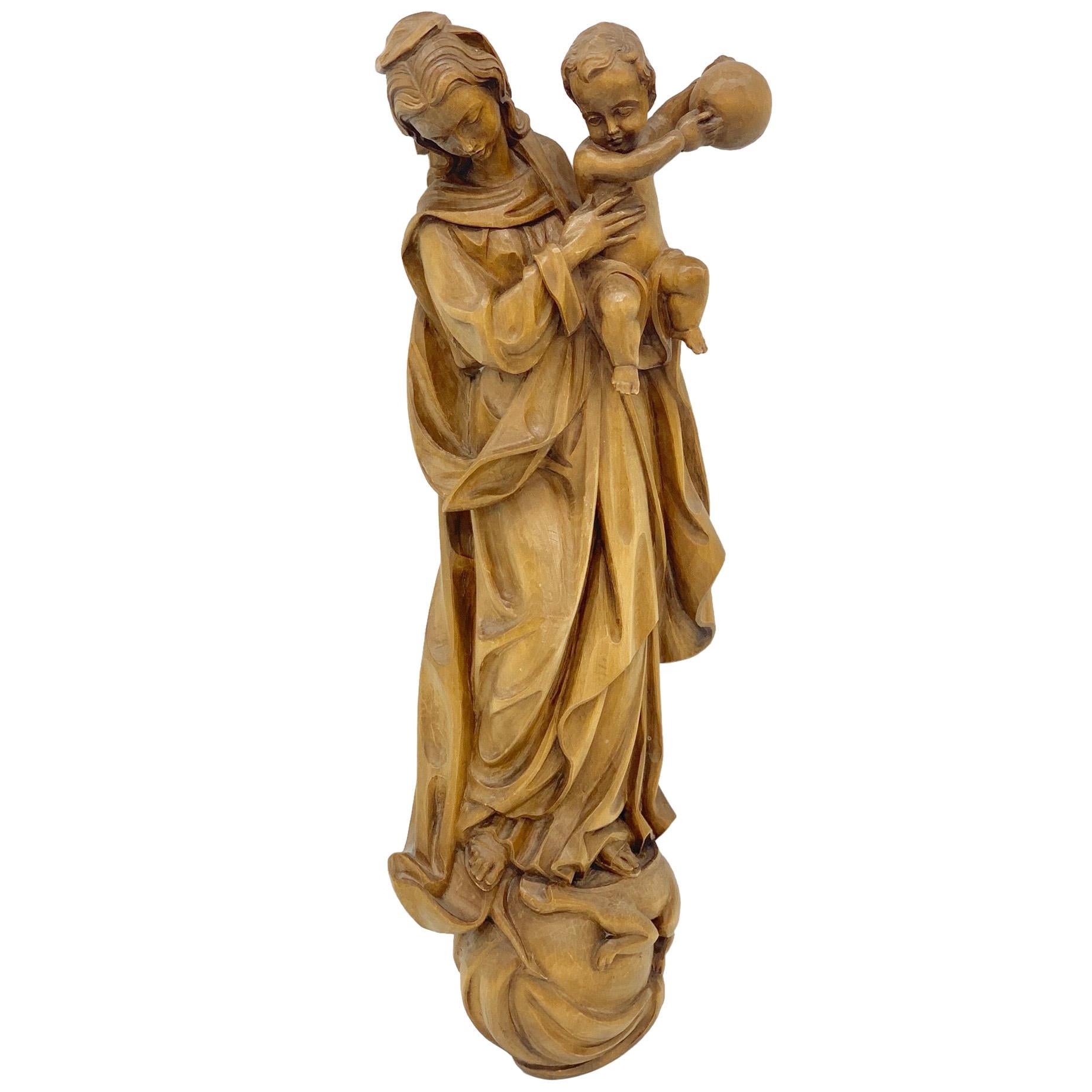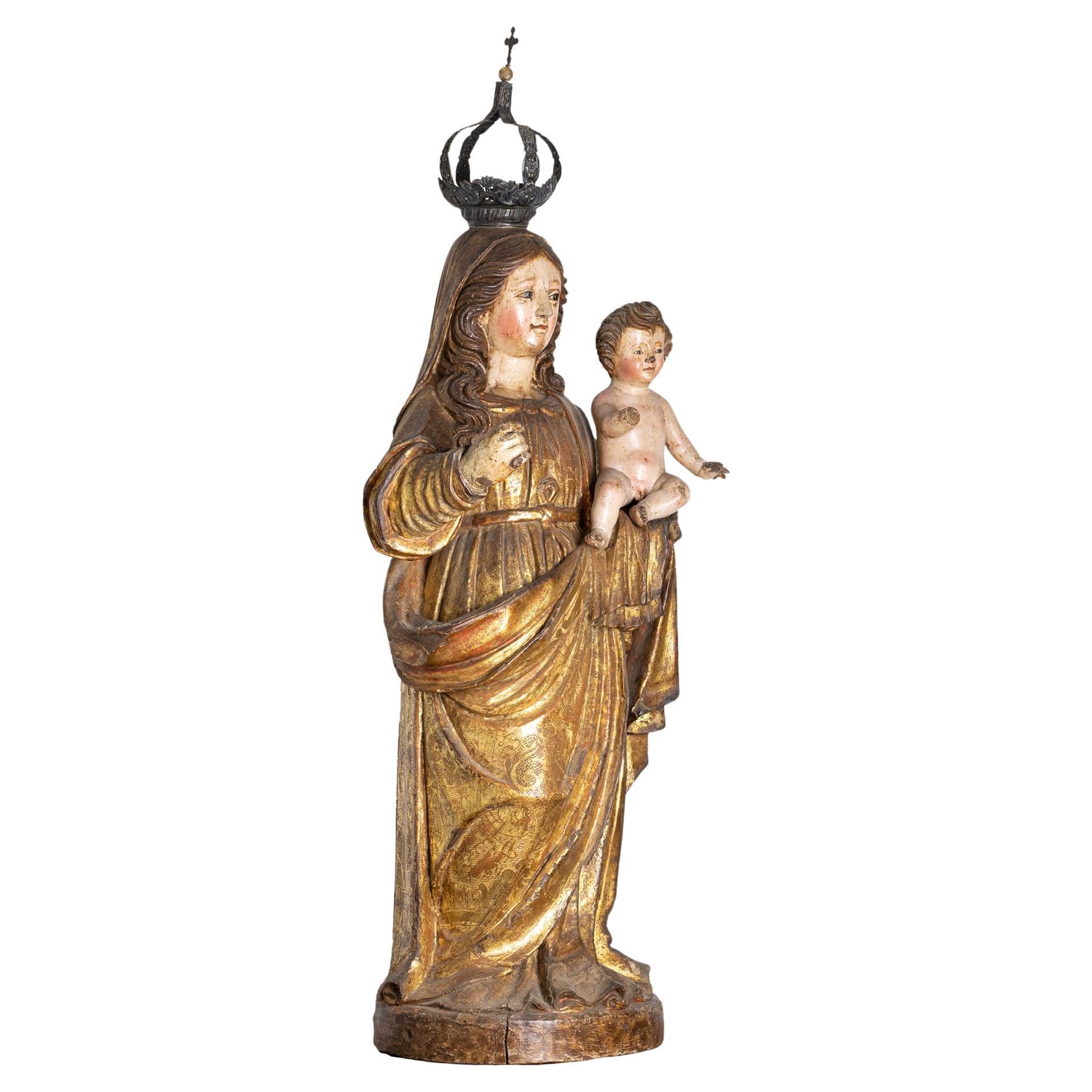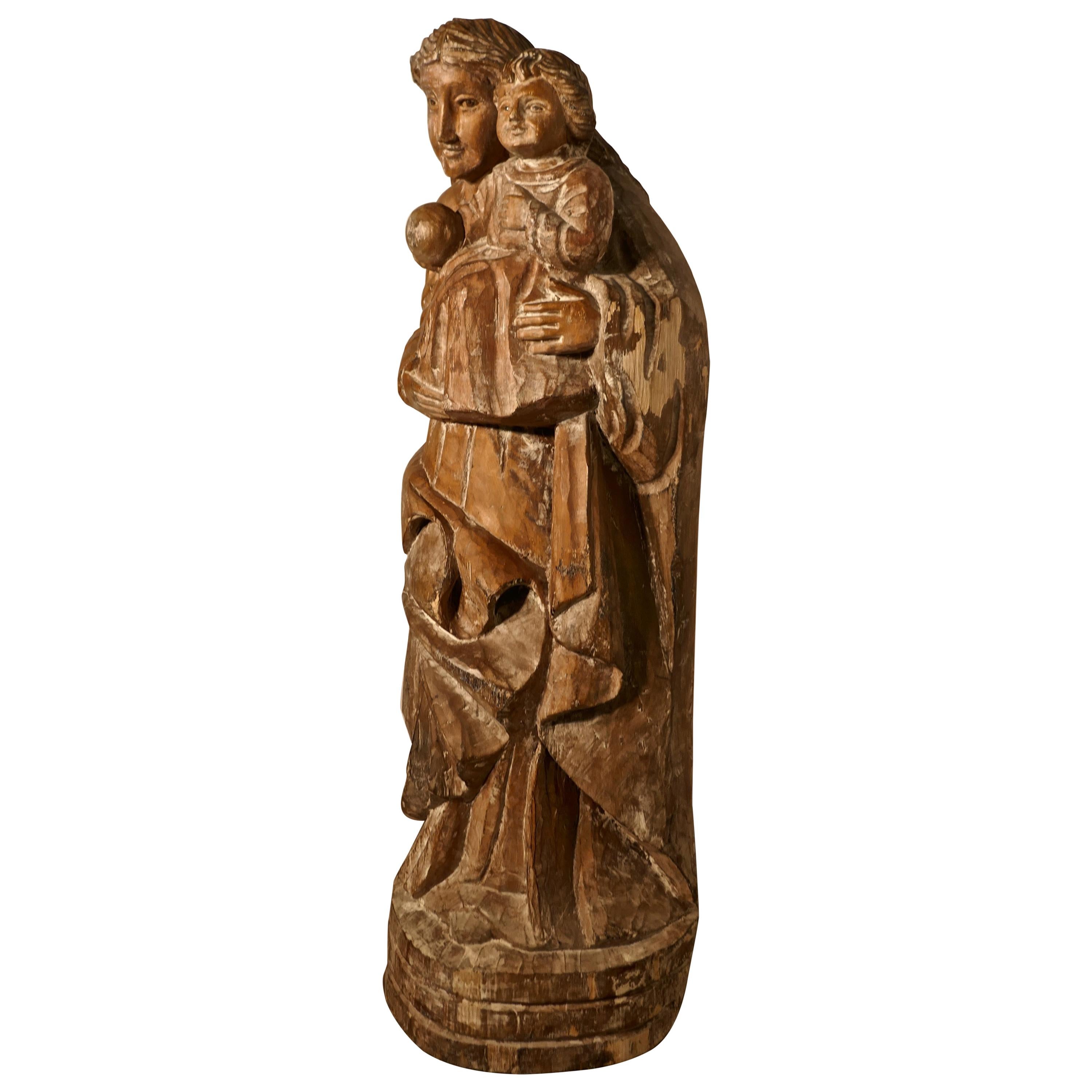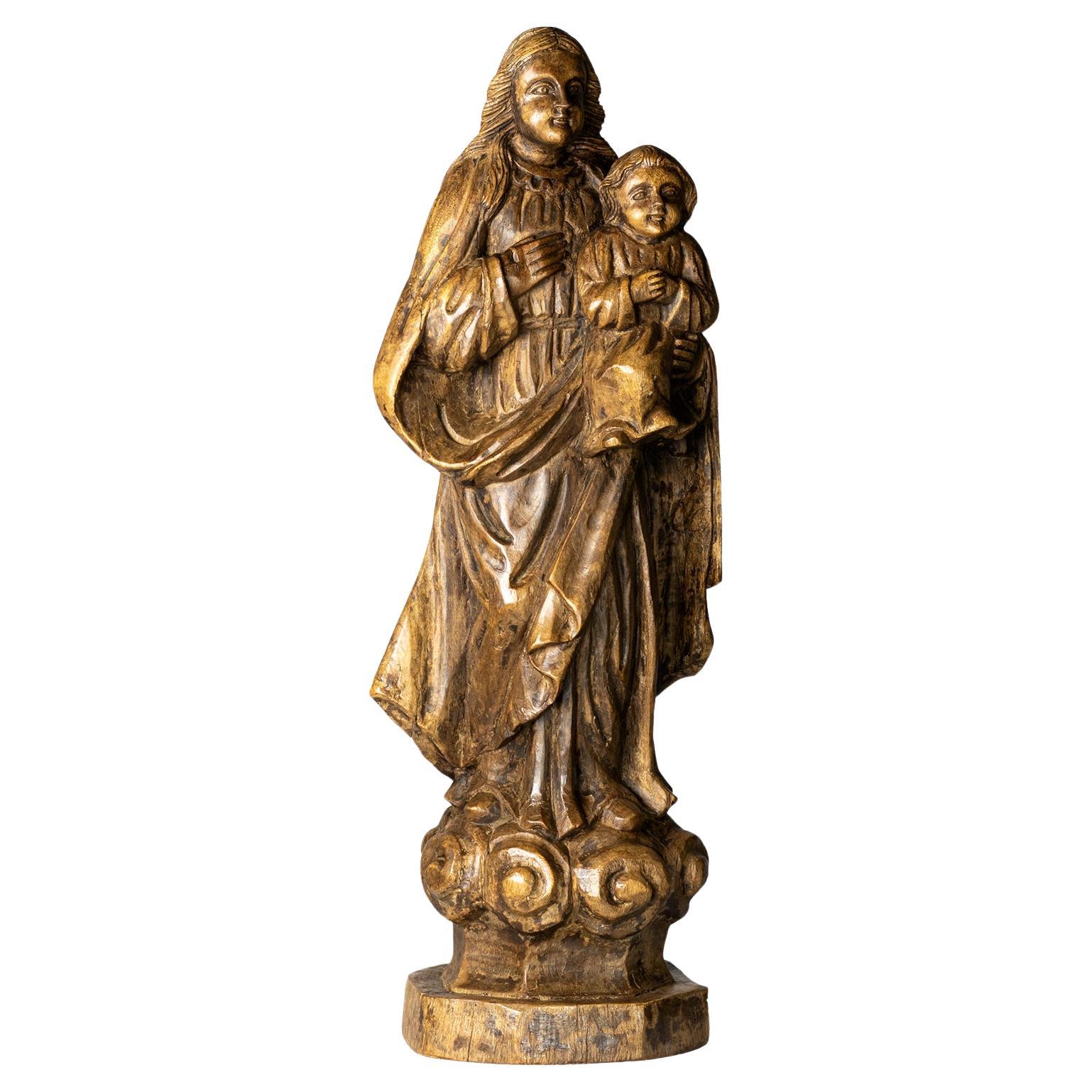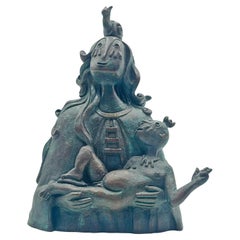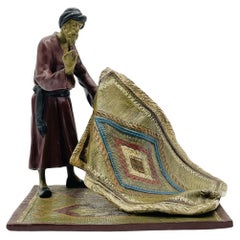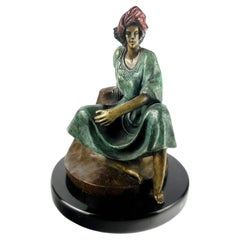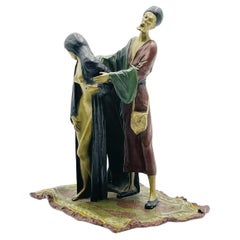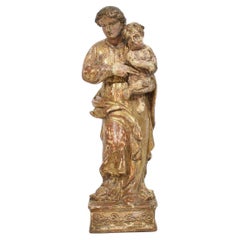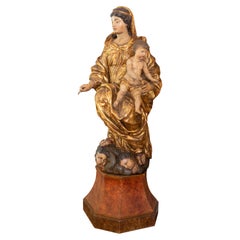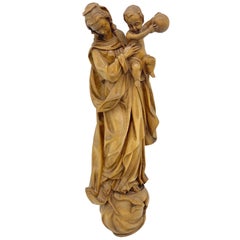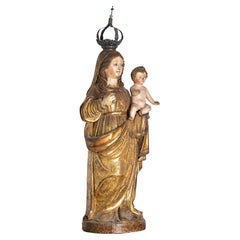Items Similar to Antique Madonna & Child Sculpture/Religious Icon, Italy 19th Century
Want more images or videos?
Request additional images or videos from the seller
1 of 19
Antique Madonna & Child Sculpture/Religious Icon, Italy 19th Century
$2,650
£1,990.75
€2,295.66
CA$3,677.22
A$4,086.20
CHF 2,141.21
MX$50,110
NOK 27,309.94
SEK 25,692.19
DKK 17,133.85
Shipping
Retrieving quote...The 1stDibs Promise:
Authenticity Guarantee,
Money-Back Guarantee,
24-Hour Cancellation
About the Item
Introducing our exquisite Antique Madonna & Child Sculpture/Religious Icon, originating from 19th-century Italy. This captivating masterpiece showcases a stunning portrayal of a woman gracefully cradling a baby, symbolizing the iconic Madonna and Child motif. Meticulously handcrafted, this sculpture exudes timeless charm and serves as a testament to the rich religious heritage of Italy. The remarkable attention to detail is evident not only in the intricate facial expressions.
This remarkable piece is a perfect addition to any discerning collector's furniture ensemble, evoking an aura of elegance and reverence in any formal setting.
The piece is has a name written with black pen however we don't believe it was done by the artist, it also has a customs clearance stamp which it appears to be from Germany dating to 1995.
Measurements:
23.50 inches high x 8.75 inches wide x 9 inches deep.
- Dimensions:Height: 23.5 in (59.69 cm)Width: 8.75 in (22.23 cm)Depth: 9 in (22.86 cm)
- Style:Revival (In the Style Of)
- Materials and Techniques:
- Place of Origin:
- Period:
- Date of Manufacture:1800s
- Condition:Wear consistent with age and use. Loss to gold gilt in several areas, cracks/splits to wood.
- Seller Location:Los Angeles, CA
- Reference Number:1stDibs: LU881737728002
About the Seller
4.9
Platinum Seller
Premium sellers with a 4.7+ rating and 24-hour response times
Established in 2008
1stDibs seller since 2009
298 sales on 1stDibs
Typical response time: <1 hour
- ShippingRetrieving quote...Shipping from: Los Angeles, CA
- Return Policy
Authenticity Guarantee
In the unlikely event there’s an issue with an item’s authenticity, contact us within 1 year for a full refund. DetailsMoney-Back Guarantee
If your item is not as described, is damaged in transit, or does not arrive, contact us within 7 days for a full refund. Details24-Hour Cancellation
You have a 24-hour grace period in which to reconsider your purchase, with no questions asked.Vetted Professional Sellers
Our world-class sellers must adhere to strict standards for service and quality, maintaining the integrity of our listings.Price-Match Guarantee
If you find that a seller listed the same item for a lower price elsewhere, we’ll match it.Trusted Global Delivery
Our best-in-class carrier network provides specialized shipping options worldwide, including custom delivery.More From This Seller
View All1995 Bronze Sculpture by Héctor Nájera, Mexico, Edition 10/55, Signed
Located in Los Angeles, CA
Expressive and poetic cast bronze sculpture by celebrated Mexican artist Héctor Nájera (b. 1931, Monterrey, Mexico), signed and dated “Nájera / 1995” and numbered 10/55 from a limite...
Category
1990s Mexican Tribal Figurative Sculptures
Materials
Bronze
Austrian Bronze Sculpture by Franz Bergman
By Franz Bergmann
Located in Los Angeles, CA
Cold painted Austrian bronze sculpture by Franz Bergman depicting a carpet trader.
The piece shows great attention to detail and craftsm...
Category
Vintage 1950s Austrian Moorish Figurative Sculptures
Materials
Bronze
Bronze Sculpture by Mexican Artist, Victor Gutierrez, Signed, Dated & Numbered
Located in Los Angeles, CA
Victor Gutierrez (Mexican, Born 1950). A limited edition cold painted bronze statue. A figural work produced in a modern style depicting a seated fema...
Category
1990s Mexican Mid-Century Modern Figurative Sculptures
Materials
Bronze
Bronze Nude Figural Sculpture by Franz Bergman
Located in Los Angeles, CA
Sustantial bronze sculpture by Austrian artist Franz Bergman depicting a Man holding a nude female and standing on a rug.
Beautiful colors and attention to detail.
Signed.
M...
Category
Vintage 1950s Figurative Sculptures
Materials
Bronze
Beautiful Bronze Sculpture "Inquietud" by Mexican Sculptor Victor Gutierrez
Located in Los Angeles, CA
Beautiful bronze may listed Mexican artist, Victor Gutierrez titled "Inquietud" and number 6 of an edition of 25.
The piece is signed and dated 87.
...
Category
Vintage 1980s Mexican Romantic Figurative Sculptures
Materials
Marble, Bronze
Silver and Abalone Shell Madonna Sculpture by Emilia Castillo for Los Castillo
By Emilia Castillo, Los Castillo
Located in Los Angeles, CA
A striking mixed-media sculpture by Mexican artist Emilia Castillo for the renowned Los Castillo workshop in Taxco. This stylized figure—reminiscent of a Madonna or cloaked female fi...
Category
Vintage 1980s Mexican Organic Modern Figurative Sculptures
Materials
Silver Plate, Brass
You May Also Like
18th Century Italian Neoclassical Carved Wooden Madonna With Child
Located in Buisson, FR
Beautiful weathered neoclassical Madonna with child. Traces of original color and gilding visible,
Italy, circa 1760-1800.
Weathered small losses and old repairs.
More photo's availa...
Category
Antique 18th Century Italian Neoclassical Religious Items
Materials
Wood
$810 Sale Price
50% Off
Italian Baroque Religious Madonna and Child Sculpture, 18th Century
Located in Lisbon, PT
An 18th-century Italian sculpture of a draped Madonna, masterfully carved in polychrome and gilded wood.
The Virgin, gracefully veiled, holding the infant Jesus on her lap with a st...
Category
Antique 18th Century Italian Baroque Figurative Sculptures
Materials
Gold Leaf
$23,645 Sale Price
32% Off
Madonna with Child Wall Sculpture Beautiful Woodwork, 20th Century
Located in DE
Madonna with child wall sculpture beautiful woodwork, 20th century. Linden wood with attention to detail.
Category
20th Century European Baroque Figurative Sculptures
Materials
Wood
Portuguese Baroque Madonna and Child Sculpture, 17th Century
Located in Lisbon, PT
This late 17th-century Portuguese Baroque sculpture in polychromed wood depicts the Madonna holding the Christ Child, carved with exquisite detail and spiritual grace.
The Virgin is...
Category
Antique Late 17th Century Portuguese Baroque Figurative Sculptures
Materials
Gold Leaf
$17,733 Sale Price
20% Off
18th Century French Carved Statue of Madonna and Child
Located in Godshill, Isle of Wight
18th century French carved statue of Madonna and Child.
This charming piece has been rescued from a ecclesiastic clear out in the southern part of France
The statue is carved fro...
Category
Antique Mid-18th Century Mission Figurative Sculptures
Statue of Our Lady and Child, Religious Sculpture, 20th Century
Located in Lisbon, PT
This captivating 20th-century statue depicts Our Lady holding the Child Jesus, crafted from warm wood with a timeless elegance.
Standing at 84 cm tall, the statue exudes a sense of ...
Category
20th Century Portuguese Baroque Figurative Sculptures
Materials
Wood
$2,955 Sale Price
20% Off
More Ways To Browse
Antique Icons
19th Century Icon
Religious Icon
Baby Furniture Antique
Religious Icons
Antique Carved Wood Religious Sculpture
Antique Religious Icons
19th Century Cradle
Italian Religious Icon
Antique Wood Cradle
Antique Cradle 19th Century
Used Baby Cradles
Baby Cradle
Antique Baby Cradles
Art Deco Goddess
Bisque France
Low Relief Sculpture
Marble Sphinx
